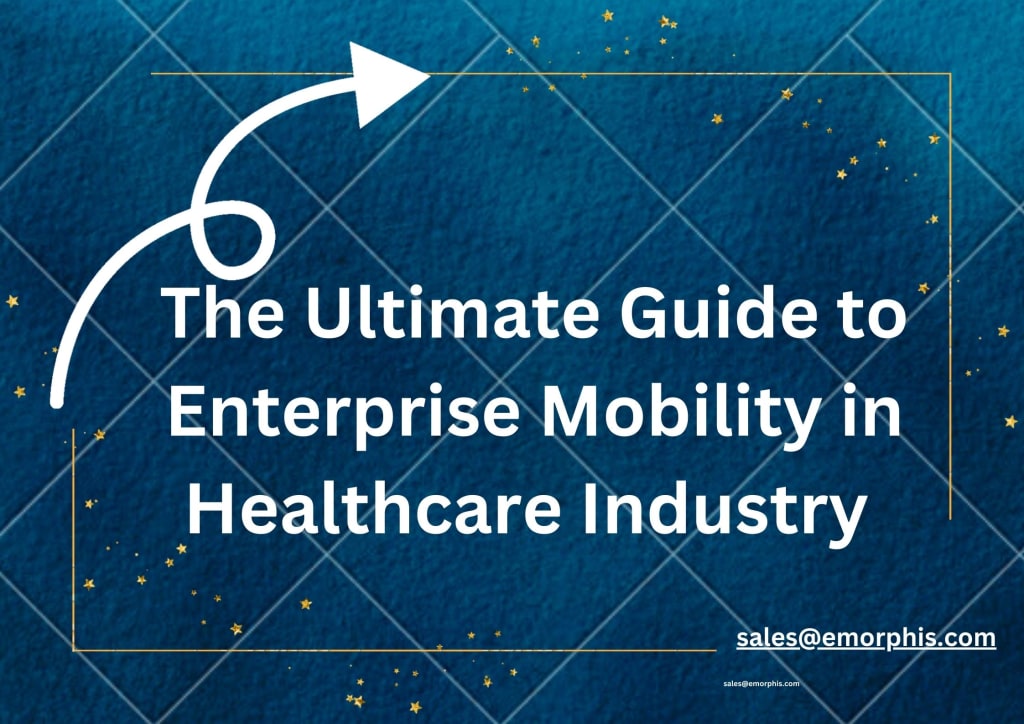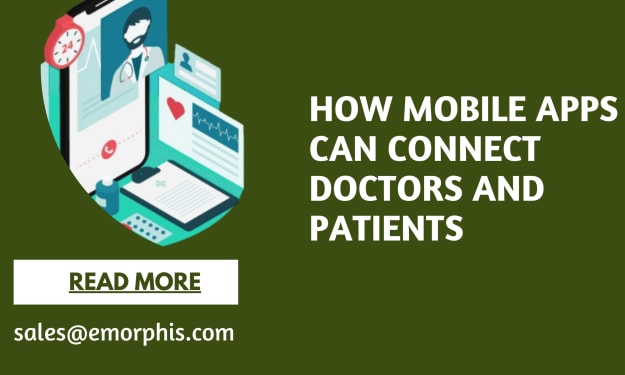The Ultimate Guide to Enterprise Mobility in Healthcare Industry
Enterprise Mobility

The Ultimate Guide to Enterprise Mobility in Healthcare Industry
Mobile technologies such as wireless sensors and mobile phones are increasingly being utilized to swiftly and effectively access and gather health information. Healthcare software development companies create healthcare software for objectives such as calorie counting, fitness tracking, smoking cessation, and body mass index calculation. Medical practitioners are using mobile applications in health care settings to aid in the investigation of difficult medical disorders.
Health practitioners frequently deal with a wide range of data, from practice licensing and credentialing paperwork to financial and compliance information. Yet, none of these are as important as health care records (also termed patient records) due to their clinical and medical billing importance. While health care records have practical uses in clinical administration, research, and Federal health care legislation such as HL7 and HIPAA, they are especially important in medical record keeping. Consequently, the degree or amount of physician reimbursement is inevitably determined by the quality of health care data.
What does mobility mean in healthcare?
In healthcare, mobility refers to the ability to access, manage, or transfer medical information, data, and resources from one place to another. It can involve the use of mobile devices, such as smartphones and tablets, to access data and resources. Mobility can help improve patient care and streamline processes in healthcare settings.
What is enterprise mobility in healthcare industry?
Enterprise mobility in the healthcare industry is the use of mobile technologies to improve healthcare delivery, reduce costs, and improve patient outcomes. This can include mobile solutions for patient engagement, medical records access, workflow management, and even remote monitoring. It also includes the use of mobile devices to access electronic health records (EHRs), streamline data entry, and improve communication between providers and patients. By leveraging mobile technologies, healthcare organizations can improve patient care, increase provider efficiency, and better manage healthcare costs.
How Enterprise Mobility Is Affecting the Healthcare Industry?
Enterprise mobility is having a profound effect on the healthcare industry. Mobile technology is making it easier for healthcare providers to access and manage patient data, track patient care, and improve efficiency throughout the entire healthcare system. In addition, enterprise mobility is helping to reduce costs, improve patient care, and streamline processes. It is also providing healthcare providers with better access to information, greater mobility, and better communication between providers and patients. Mobile technology is also helping to reduce errors and improve safety within hospitals, clinics, and other healthcare facilities.
Benefits of Healthcare Software Development Services through Enterprise mobility
1. Enhanced Productivity: Mobile healthcare applications have a direct impact on the productivity of healthcare organizations. By allowing healthcare professionals to access and manage patient information, healthcare software development services through enterprise mobility helps to streamline processes, reduce paperwork and save time.
2. Improved Communication: With the help of mobile healthcare applications, healthcare professionals can keep in touch with other healthcare professionals, patients and caretakers. This helps to improve communication and ensure that all parties are kept up to date with the latest developments.
3. Enhanced Data Security: Mobile healthcare applications are designed to be secure and HIPAA-compliant. This helps to protect sensitive patient data from unauthorized access and ensure that patient privacy is maintained.
4. Improved Patient Care: Mobile healthcare applications allow healthcare professionals to access patient data from anywhere, anytime. This helps to improve patient care, since healthcare professionals can quickly and easily access the necessary information.
5. Reduced Costs: By streamlining processes and eliminating paperwork, healthcare software development services through enterprise mobility can help to reduce operational costs. This can help healthcare organizations to save money and use it to improve patient care.
There are still many more benefits that healthcare software development company provides to its clients and types of solutions include:
Medical imaging system
Medical insurance system
Medical billing software
Hospital information systems
EHR/EMR solution
Healthcare Software/solutions for doctors, physicians, surgeons, clinics, pharmacy, and laboratory.
Healthcare intelligence and analytics
About the Creator
Larisa Albanians
Hey, a healthcare technology solutions provider at emorphis, that is helping organizations to deliver better healthcare solutions.






Comments
There are no comments for this story
Be the first to respond and start the conversation.